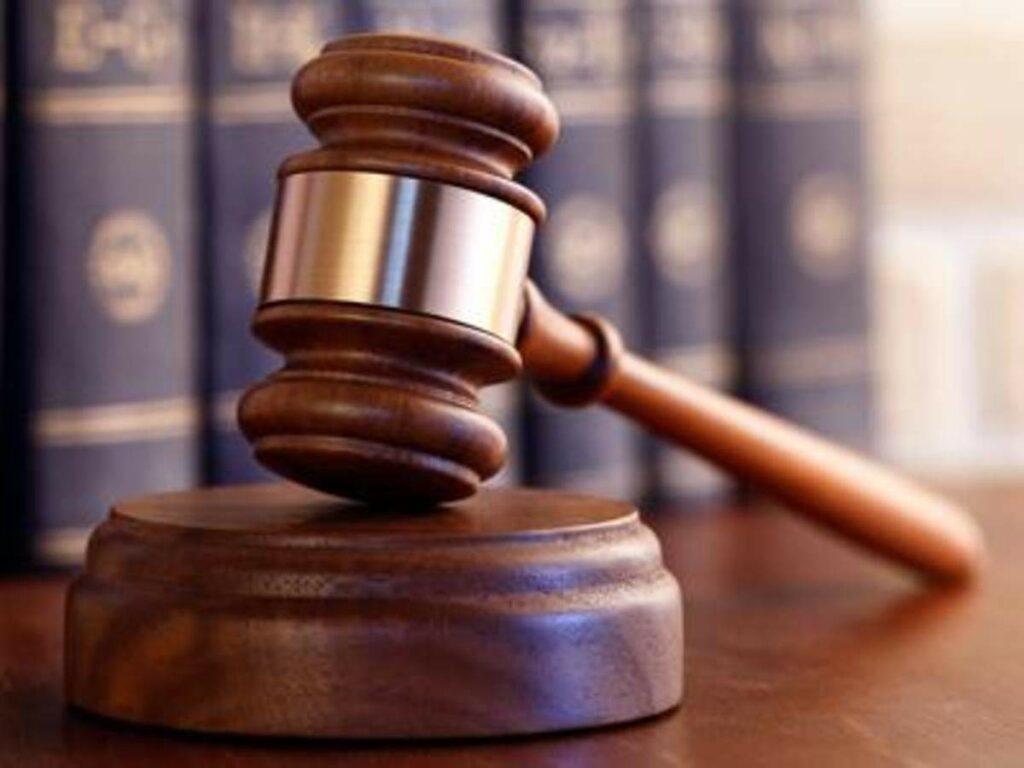UCMJ Article 123: Offenses Concerning Government Computers And Worthless Checks
At Bilecki Law Group, we defend service members against charges related to government computers, as well as charges regarding worthless checks under Article 123 of the UCMJ.
Home Court Martial Defense Punitive Articles of the UCMJ UCMJ Article 123: Forgery
What Is Article 123 Of The UCMJ?
Article 123 of the UCMJ governs charges related to activities with government computers as well as charges related to worthless checks. The computer charges include unauthorized distribution of classified information obtained from a government computer, unauthorized access of a government computer, and causing damage to a government computer.
As it pertains to worthless checks, Article 123 also outlines charges that include Worthless Check with intent to defraud and worthless checks with intent to deceive. Whereas the charges related to government computers are more serious and come with stiffer penalties, the charges related to worthless checks are perhaps one of the more tragic.
That’s because in most cases, what we see are young service members trying to take care of their family on a limited income. There exists the misconception that BAH and military pay can cover any and all expenses incurred by a family. That’s just not the case and not every command is sympathetic or supportive of young military families. Unfortunately, any charge under Article 123 has the ability to end your career and as such, they must be taken seriously.
You have fought honorably for your country. Now let us fight for you. Defend yourself against financial fraud allegations by contacting Bilecki Law Group TODAY.
What Specific Charges May I Face Under Article 123?
Under Article 123, there are three specific charges that you can face regarding crimes with government computers and two specific charges related to worthless checks. For clarity’s sake, we’ll list them exactly as you would read them from the UCMJ while simultaneously showing you the corresponding maximum punishments you may face.
Unauthorized distribution of classified information obtained from a government computer – For a service member to be found guilty, the prosecution must satisfy the following four elements:
(1) That (state the time and place alleged), the accused knowingly accessed a Government computer with an unauthorized purpose;
(2) That the accused, thereby, obtained classified information, to wit: (here describe the classified information generally, in an unclassified manner);
(3) That the accused had reason to believe the information could be used to the injury of the United States or to the advantage of any foreign nation; and
(4) That the accused intentionally (communicated) (delivered) (transmitted) (caused to be communicated/delivered/transmitted) such information to ___________, a person not entitled to receive it.
Maximum Punishment: Dishonorable discharge, total forfeiture of all pay and allowances, 10 years confinement and reduction in rank to E-1.
Unauthorized access of a government computer and obtaining classified or other protected information – For a service member to be found guilty, the prosecution must satisfy the following two elements:
(1) That (state the time and place alleged), the accused intentionally accessed a Government computer with an unauthorized purpose; and
(2) That the accused thereby obtained classified or other protected information, to wit: (here describe the classified or other protected information generally, in an unclassified manner), from any such Government computer.
Maximum Punishment: Dishonorable discharge, total forfeiture of all pay and allowances, 5 years confinement and reduction in rank to E-1.
Causing damage to a government computer – For a service member to be found guilty, the prosecution must satisfy the following two elements:
(1) That (state the time and place alleged), the accused knowingly caused the transmission of a program, information, code, or command; and;
(2) That the accused, as a result, intentionally and without authorization, caused damage to a Government computer.
Maximum Punishment: Dishonorable discharge, total forfeiture of all pay and allowances, 10 years confinement and reduction in rank to E-1.
Check, worthless, with intent to defraud – For a service member to be found guilty, the prosecution must satisfy the following four elements:
(1) That (state the time and place alleged), the accused (made) (drew) (uttered) (delivered) to (state the name of the payee or other alleged victim) a (check) (draft) (money order) drawn upon the __________ (Bank) (__________), to wit: (describe the check, draft, money order, or, if set forth in the specification, make reference to it);
(2) That the accused did so for the purpose of procuring an article or thing of value, to wit: (state the article/thing alleged);
(3) That the accused committed the act with intent to defraud; and
(4). That, at the time of the (making) (drawing) (uttering) (delivering) of the instrument, the accused knew that (he/she) (the maker/drawer) did not or would not have sufficient (funds in) (credit with) the (bank) (depository) for the payment thereof in full upon its presentment.
Maximum Punishment: Value of $1,000 or less comes with a bad conduct discharge, total forfeiture of all pay and allowances, 6 months confinement and reduction in rank to E-1.
Value of more than $1,000 comes with a dishonorable discharge, total forfeiture of all pay and allowances, 5 years confinement and reduction in tank to E-1.
Check, worthless, with intent to deceive – For a service member to be found guilty, the prosecution must satisfy the following four elements:
(1) That (state the time and place alleged), the accused (made) (drew) (uttered) (delivered) to (state the name of the payee or other alleged victim) a (check) (draft) (money order) drawn upon the __________ (Bank) (__________), to wit: (describe the check, draft, money order, or, if set forth in the specification, make reference to it);
(2) That the accused did so for the purpose of (effecting the payment of a past due obligation) (__________);
(3) That the accused committed the act with intent to deceive; and
(4) That, at the time of the (making) (drawing) (uttering) (delivering) of the instrument, the accused knew that (he) (she) (the maker/drawer) did not or would not have sufficient (funds in) (credit with) the (bank) (depository) for the payment thereof in full upon its presentment.
Maximum Punishment: Bad conduct discharge, total forfeiture of all pay and allowances, 6 months confinement and reduction in rank to E-1.
Sentencing Guidelines
This Article
Offense Category
Months Confinement
Unauthorized distribution of classified information obtained from a Government computer
Category 3
30-120
Unauthorized access of a Government computer and obtaining classified or other protected information
Category 2
1-36
Causing damage to a Government computer
Facing an Allegation?
Contact Bilecki Law Group

Timothy James Bilecki
Military law attorney
- tbilecki@bileckilawgroup.com
- Tampa, FL 33602
How Serious Are Worthless Check Charges Under Article 123?
Few things get us fired up more than the military justice system trying to ruin a young service member’s life for trying to meet his family’s needs. It’s rare that we see a service member passing worthless checks so that he could score the latest edition of PlayStation. It’s more like he’s trying to purchase formula for his baby and he was in a damned if you do and damned if you don’t scenario.
To make matters worse, he let his command know he was having trouble but the First Sergeant who is on his fourth divorce from his fourth stripper married, just lectured the young Marine about living up to his family responsibilities. This guy couldn’t make it work with TaTa Sparkles or Rainbow Delight and he wants to tell this 19-year-old PFC with two kids what he’s doing wrong.
Young marriages occur all the time in the military and it’s often driven by homesickness and his high school sweetheart who wanted out of her small town life. Commands should be supporting these young families through this process and when someone makes a mistake with a check, prosecuting him to the fullest extent allowed under the UCMJ is a terrible tragedy.
Will Computer Charges Under Article 123 Brand Me a Traitor?
PFC Bradley Manning who famously leaked classified material about the war in Iraq didn’t do you any favors with his high-profile case. As such, if you are accused of computer crimes under Article 123, chances are that you are going to be viewed as a traitor by the entire military justice system and your peers. It’s a hell of a place to be in and you are going to have to fight for your good name if you are innocent as charged.
You may have thought you had authorization to access certain material, but if you are wrong, you’re going to pay a price. If you leaked a video of a sick A-10 strike on enemy positions to the boys over at Funker530 combat footage and it was restricted, you’re going to pay a price. You may have posted for the social shares, but the military justice system is going to treat it like you just leaked the nuclear launch codes. Whether it’s right or not, this is how you are going to be treated in the public square.

Years of Experience
Court Martial Verdicts
Service Members Represented
Miles Traveled

How To Fight Back and Win Against Article 123 Charges?
Truthfully, it doesn’t matter whether you are facing charges for leaking classified information obtained from a government computer or writing a worthless check for baby formula. Your only course of action is to fight like hell and let the military justice system know that it doesn’t have an easy win ahead of them.
You have to remember that the military justice system doesn’t exist for the purpose of issuing proportional justice. The system exists for the singular purpose of preserving military order and discipline. For that to work, they have to make an example out of someone and if they think you are an easy win, they will make that example out of you.
If you are facing charges under Article 123, reach out to us and we’ll shoot you straight on exactly what you are facing. We’ll also give you a free defense strategy session that is yours to use, regardless of whether you retain us. If you do retain us, we’ll take the fight to the military justice system on your behalf without apology. We will fight the prosecution at every turn and they will know that they do not have an easy “example” out of you.
You have to fight. Please don’t assume that your innocence is enough to get you off the hook. The military justice system is more interested in order than they are your innocence or what is truly just in this case. Even if you did make a mistake and you did want that new PS5 so badly that you wrote a bad check, you still have to fight to secure the best possible outcome for yourself. Reach out to us and get us into that fight. This doesn’t have to be the end of your career and it sure as hell shouldn’t send you to military prison. Fight back and let us help swing the hammer in your defense.
Find Info on Other Articles of the UCMJ
your path to legal defense
Get in Touch
- tbilecki@bileckilawgroup.com
- 813-669-3500
- Bilecki Law Group, PLLC, 601 S. Harbour Island BLVD, Suite 109 Tampa, FL 33602
